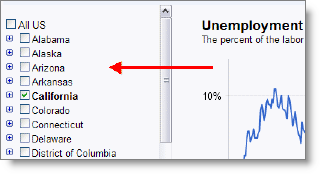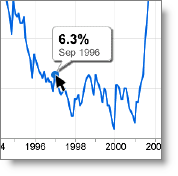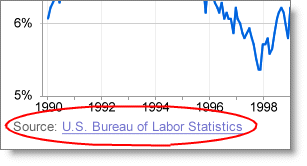Tuesday, May 19, 2009
President Obama Freezes School Library Funding in 2010
President Obama may talk about the importance of libraries, but now that his budget is out, librarians are wondering, where’s the love?
The president is proposing a slight funding hike for public libraries through the Library Service and Technology Act (LSTA)—but he’s keeping monies for the Improving Literacy Through School libraries program at $19.1 million, the same level since 2008.
“We’re disappointed by the budget because it lacks the adequate resources that libraries require to meet the needs of the American people,” says Melanie Anderson, the American Library Association’s (ALA) associate director of the Office of Government Relations. “We’ve more than demonstrated that libraries provide important resources for their communities during this recession.”
ALA had high hopes that Obama would be more generous to libraries next year, considering the president’s comment in February that his administration had begun to go “line by line through the federal budget” to eliminate wasteful and ineffective programs and reward those that succeed.
That same month, the Department of Education(DOE) released a report saying that schools participating in the Improving Literacy Through School Libraries program perform higher on state reading tests.
...
http://www.schoollibraryjournal.com/article/CA6657608.html?desc=topstory
Sunday, May 10, 2009
Ode To The Book, by Pablo Neruda
I open life.
I hear
faltering cries
among harbours.
Copper ignots
slide down sand-pits
to Tocopilla.
Night time.
Among the islands
our ocean
throbs with fish,
touches the feet, the thighs,
the chalk ribs
of my country.
The whole of night
clings to its shores, by dawn
it wakes up singing
as if it had excited a guitar.
The ocean's surge is calling.
The wind
calls me
and Rodriguez calls,
and Jose Antonio--
I got a telegram
from the "Mine" Union
and the one I love
(whose name I won't let out)
expects me in Bucalemu.
No book has been able
to wrap me in paper,
to fill me up
with typography,
with heavenly imprints
or was ever able
to bind my eyes,
I come out of books to people orchards
with the hoarse family of my song,
to work the burning metals
or to eat smoked beef
by mountain firesides.
I love adventurous
books,
books of forest or snow,
depth or sky
but hate
the spider book
in which thought
has laid poisonous wires
to trap the juvenile
and circling fly.
Book, let me go.
I won't go clothed
in volumes,
I don't come out
of collected works,
my poems
have not eaten poems--
they devour
exciting happenings,
feed on rough weather,
and dig their food
out of earth and men.
I'm on my way
with dust in my shoes
free of mythology:
send books back to their shelves,
I'm going down into the streets.
I learned about life
from life itself,
love I learned in a single kiss
and could teach no one anything
except that I have lived
with something in common among men,
when fighting with them,
when saying all their say in my song.
Thursday, May 07, 2009
GOVERNOR'S ADMINISTRATION WARNS: THE STATE MAY BORROW $2 BILLION FROM LOCAL GOVERNMENTS IF MAY 19TH BALLOT MEASURES FAIL
Take Action!
May 7, 2009
Yesterday the State Department of Finance informed several local government organizations that, with the possibility that the May 19th ballot initiatives may not be successful, one of the options to address the potential Budget shortfall would be to borrow approximately $2 billion in property taxes from local governments.
The background paper provided during the briefing by the Department of Finance states:
"The constitution allows that up to 8% of local governments' property tax revenues can be borrowed by the state and repaid within three budget years with interest. The amount that can be borrowed is determined by the amount of property taxes received by cities, counties, and special districts in the preceding year. Borrowing from local government in the 2009-10 fiscal year would provide $2.006 billion in solutions.
Local governments could borrow against the state's constitutional obligation to repay, thereby mitigating the impact of this reduction. However, in the current economic landscape, local governments are not easily finding available short term financing and could face difficulties borrowing these funds from the market. If they borrow, local government will incur substantial borrowing costs."
The Department of Finance also acknowledges that there would be varying affects on local governments as it "will, in part, depend on the ability of local government to obtain borrowing from the market. This reduction could result in cuts to locally funded services such as police and fire, waste collection, road maintenance, libraries and other services."
As you will recall, Proposition 1A in 2004, provided certain protections for cities, counties, and special districts against future raids of their property taxes, for the purpose of balancing the state Budget. However, contained in Proposition 1A was a caveat, which allows the state, beginning in 2008-09, to "suspend" the prohibition on taking local property taxes if the Governor proclaims a "significant State fiscal hardship" and gets the Legislature to agree by a 2/3rds vote. If you are interested, the legislation spelling out the terms of Proposition 1A is contained in SCA 4 (2004) and SB 1096 - a Budget trailer bill from 2004.
Last year, during the very difficult and protracted Budget deliberations, there was an ongoing threat that the Budget deal would include borrowing property taxes from cities, counties, and special districts. Thanks to opposition from affected groups, the proposal was not included in the final Budget agreement. As you may be reading, and it is particularly indicative in early polling data, there is a strong likelihood that several, if not all of the ballot measures will fail on May 19th, resulting in a $6 billion loss in revenue, primarily from the loss of $5 billion in lottery securitization funds (Proposition 1C). Coupled with the $8 billion shortfall already projected by the Legislative Analyst's Office, there will be an immediate $14 billion hole in the state Budget. Some Republican members of the legislature have stressed that "taxes will not be an option this time around" and thus, the legislature will be looking to solutions such as cuts, borrowing, and increased fees.
Submitted by Michael Dillon and Christina DiCaro, CLA Lobbyists
Wednesday, May 06, 2009
Google Introduces Public Data Search Feature
Find public statistical data through Google
Public statistical data, such as unemployment rates or population numbers, doesn't need to be hard to find or, more importantly, hard to understand. Google is making it easier to find and use important public statistical data from governments and other sources. This data is included in Google.com search results and displayed as interactive graphs that you can customize and share with others.
Find public statistical data through GooglePublic statistical data, such as unemployment rates or population numbers, doesn't need to be hard to find or, more importantly, hard to understand. Google is making it easier to find and use important public statistical data from governments and other sources. This data is included in Google.com search results and displayed as interactive graphs that you can customize and share with others. Watch a short video on using Google to find public data
See public data resultsIf you've ever done research involving large datasets, you know that it can take hours to comb through databases in order to find and analyze trends. Anyone who searches for U.S. unemployment rates or population numbers on Google.com will see relevant statistics and graphs included in their search results. You can even search by state or county (but not by city).
Want to give it a try? Try these example searches: [ Florida unemployment rate ], [ Santa Clara county population ]. Not using Google.com? Go to http://www.google.com/webhp?hl=en&gl=us to try these searches. Customize and share public data graphsClicking a public data result will take you to a larger interactive graph where you can compare the available data. (Having problems viewing the graph? Make sure you're using the latest version of Flash.) Even people who normally shy away from statistics should find these dynamic graphs easy to use and understand. Here are a few suggestions for working with these graphs:
Have other questions about using these public data graphs? Visit the Google Web Search Forum. Data sourcesThe unemployment rate and population data you see in Google come from the U.S. Census Bureau and the U.S Bureau of Labor Statistics. Keep in mind that even the most recent public statistic is a bit old by the time it's published, since it takes time to collect and process data. Information on accessing the original datasets The public data can be downloaded from the following websites: Unemployment rateSource: U.S. Bureau of Labor Statistics; Update schedule All U.S.Current population survey: Data access: Compressed zip files: bls.lneu.date200903.Z State and county Local area unemployment statistics: Data access flat files ftp PopulationSource: U.S. Census Bureau, Population Division; Update schedule All US2000-2008 Estimates Data access aggregated from state totals 1990-1999 Intercensal estimates Data access aggregated over all counties 1980-1989 Intercensal estimates Data access States 2000-2008 Estimates Data access 1990-1999 Intercensal estimates Data access aggregated over counties by state 1980-1989 Intercensal estimates Data access Counties 2000-2008 Estimates Data access 1990-1999 Intercensal estimates Data access 1980-1989 Intercensal estimates Data access Want to make your public data more visible?We are constantly looking to expand the scope of public data that people can find through Google. To learn more about making your organization's data available through the public data feature of Google search, see our information for data publishers. |



